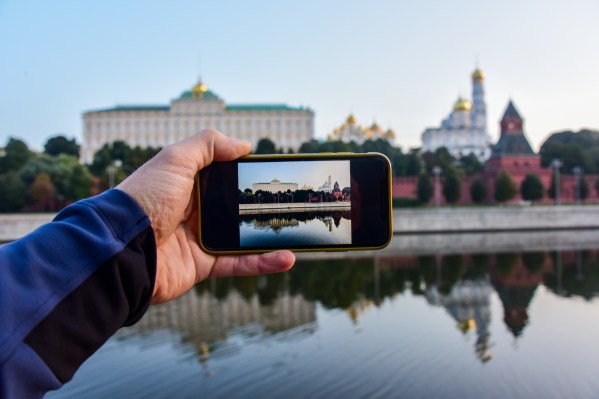

Last month, Donald Trump took to Twitter to criticize Apple for not unlocking two iPhones belonging to the Pensacola shooter, another volley in the struggle between big tech and the world’s governing bodies. But even the White House’s censure pales in comparison to the Kremlin’s ongoing plans. Apple, as the timing would have it, also happens to be in Vladimir Putin’s sights.
The company’s long-running policy of not preloading third-party software onto its devices is coming up against a new piece of Russian legislation requiring every smart device to be sold with certain applications already installed, many of which are produced by the government. Inside the country, the policy has even been called the zakon protiv Apple, or the “law against Apple,” for how it disproportionately affects the tech giant. While the law was passed last November, the Russian Federal Antimonopoly Service released the full list of apps only last week.
These regulations form the latest move in what’s turning out to be one of the largest national campaigns for digital control outside of Asia. These laws have been steadily accumulating since 2014 and are described as a way of consolidating sovereignty over the digital space — threatening to push companies out of the country if they fail to comply. Apple, for instance, will have to choose by July 1 whether maintaining access to the Russian market is worth making a revolutionary change in their policy. The same choice is given to any company wishing to do business in the country.

